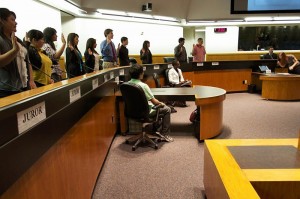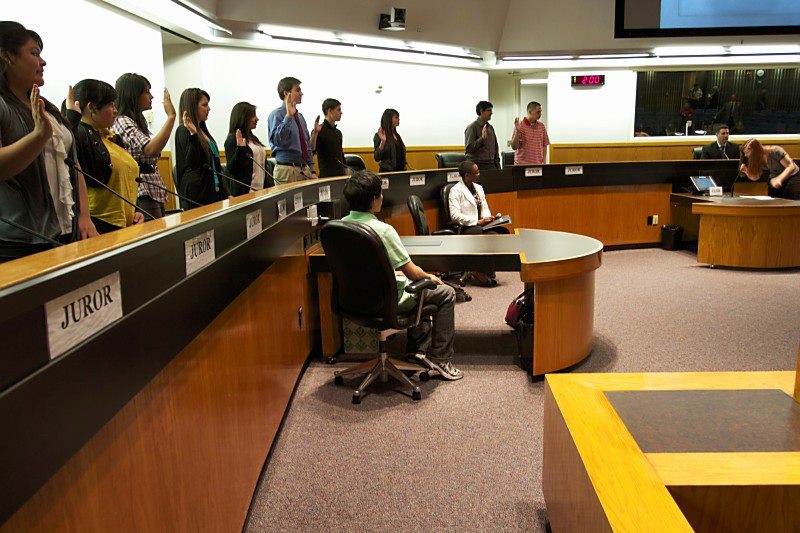Hector Sanchez of the Probation Department and attorney Andrew Phillips talked to a room of 29 MVHS students on Sept. 25 during lunch about participating in Peer Court, a program that lets peers judge minor offenders’ cases and help them reflect on their offenses.
The Santa Clara County probation department organized Peer Court three years ago to help minors under 18 years old who commit low-level crimes. Once a minor has admitted guilt for a crime, a group of students form a Peer Court to talk to the minor about what to do next. According to Phillips, this student effort is called “restorative justice” because rather than discussing guilt like normal justice courts, Peer Court members discuss how to help the minor recover from his mistakes.

“We’re not here to punish [offenders],” Phillips said. “We’re here to help the offenders reflect on what they’ve done and help them recover.”
Junior Ajay Merchia first heard of the Peer Court program last year in his Law class. Attracted by the chance to make a real difference in trial, Merchia joined in April.
“It’s no longer about these fake trials,” Merchia said, explaining the difference between Peer Court and programs like Mock Trial. “These are actual kids we’re learning to deal with.”
Since April, Merchia has attended over ten cases. As an aspiring attorney, he appreciates the opportunity for a real-life court case. Right now, he primarily acts as a clerk in Peer Court cases, administering oaths to all members of the court to ensure that the minor’s confidentiality is safe.
Unlike clubs like Mock Trial, Peer Court must take measures to make sure that members of the court follow laws of confidentiality, since they are dealing with minors who are legally recognized by law.
“You get a real perception of what the real world is,” Merchia said. “This is truly a chance to enter the adult world.”
According to Sanchez, minors’ records for small offenses usually stay with them for the rest of their lives. One instance of petty theft could potentially be found a decade later by an employer, affecting the available job opportunities. However, through Peer Court, some minors are able to erase their records. Depending on the severity of the offense, Peer Court may give offenders the opportunity to show growth through things as simple as community service and apology letters. While adult courts often give minors similar opportunities, the environment often prevents minors from complying with these terms.
“Offenders accept student interventions much easier than they accept [adults’] interventions,” Sanchez said. “If you had a problem, who would you accept advice from: an adult, or a peer?”
Peer Court is becoming more popular, with as many as thirty students from the county at each of the almost weekly trainings and court cases, not including the twenty-nine students in the room on Sept. 5. With the knowledge that Peer Court will continue, Merchia hopes to come back throughout and after college as a mentor for Peer Court students, guiding them through the legal process.
“These are actual kids we’re learning to deal with,” Merchia said. “It’s an amazing experience, really, to be able to see how you defend a person in a case and see them completely reformed a few weeks later, thanking you for what you did.”








